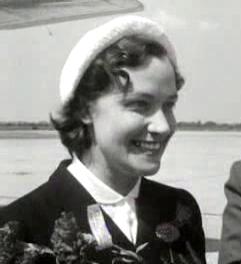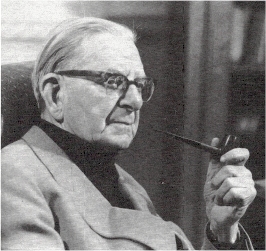Related Research Articles

The Times is a British daily national newspaper based in London. It began in 1785 under the title The Daily Universal Register, adopting its current name on 1 January 1788. The Times and its sister paper The Sunday Times are published by Times Media, since 1981 a subsidiary of News UK, in turn wholly owned by News Corp. The Times and The Sunday Times, which do not share editorial staff, were founded independently and have had common ownership only since 1966. In general, the political position of The Times is considered to be centre-right.

Kathleen Mary Ferrier, CBE was an English contralto singer who achieved an international reputation as a stage, concert and recording artist, with a repertoire extending from folksong and popular ballads to the classical works of Bach, Brahms, Mahler and Elgar. Her death from cancer, at the height of her fame, was a shock to the musical world and particularly to the general public, which was kept in ignorance of the nature of her illness until after her death.

Richard Lydekker was an English naturalist, geologist and writer of numerous books on natural history.

The Press and Journal is a daily regional newspaper serving northern and Highland Scotland including the cities of Aberdeen and Inverness. Established in 1747, it is Scotland's oldest daily newspaper, and one of the longest-running newspapers in the world.

Sir John Frederick Neville Cardus, CBE was an English writer and critic. From an impoverished home background, and mainly self-educated, he became The Manchester Guardian's cricket correspondent in 1919 and its chief music critic in 1927, holding the two posts simultaneously until 1940. His contributions to these two distinct fields in the years before the Second World War established his reputation as one of the foremost critics of his generation.

Sydney Francis Barnes was an English professional cricketer who is regarded as one of the greatest bowlers of all time. He was right-handed and bowled at a pace that varied from medium to fast-medium with the ability to make the ball both swing and break from off or leg. In Test cricket, Barnes played for England in 27 matches from 1901 to 1914, taking 189 wickets at 16.43, one of the lowest Test bowling averages ever achieved. In 1911–12, he helped England to win the Ashes when he took 34 wickets in the series against Australia. In 1913–14, his final Test series, he took a world record 49 wickets in a Test series, against South Africa.

Tom Richardson was an English cricketer. A fast bowler, Richardson relied to a great extent on the break-back, a relatively long run-up and high arm which allowed him to gain sharp lift on fast pitches even from the full, straight length he always bowled. He played 358 first-class cricket matches including 14 Tests, taking a total of 2,104 wickets. In the four consecutive seasons from 1894 to 1897 he took 1,005 wickets, a figure surpassed over such a period only by the slow bowler Tich Freeman. He took 290 wickets in 1895, again a figure only exceeded by Freeman (twice). In 1963 Neville Cardus selected him as one of his "Six Giants of the Wisden Century".

Ernest Newman was an English music critic and musicologist. Grove's Dictionary of Music and Musicians describes him as "the most celebrated British music critic in the first half of the 20th century." His style of criticism, aiming at intellectual objectivity in contrast to the more subjective approach of other critics, such as Neville Cardus, was reflected in his books on Richard Wagner, Hugo Wolf, Richard Strauss and others. He was music critic of The Sunday Times from 1920 until his death nearly forty years later. His other positions included chief music critic of The Birmingham Post from 1906 to 1919, as well as brief stints as the chief music critic for The Guardian (1905–1906) and The Observer (1919).

The Leicester Mercury is a British regional newspaper for the city of Leicester and the neighbouring counties of Leicestershire and Rutland. The paper began in the 19th century as the Leicester Daily Mercury and later changed to its present title.

Joseph William Henry Makepeace was an English sportsman who appeared for his country four times at each of cricket and football. He is one of just 12 English double internationals.

Karl Rankl was a British conductor and composer who was of Austrian birth. A pupil of the composers Schoenberg and Webern, he conducted at opera houses in Austria, Germany and Czechoslovakia until fleeing from the Nazis and taking refuge in England in 1939.

A Southern Maid is an operetta in three acts composed by Harold Fraser-Simson, with a book by Dion Clayton Calthrop and Harry Graham and lyrics by Harry Graham and Harry Miller. Additional music was provided by Ivor Novello and George H. Clutsam, with additional lyrics by Adrian Ross and Douglas Furber. It starred José Collins and Bertram Wallis.

The Key West Citizen is a daily newspaper published in Key West, Florida. The newspaper is the result of the amalgamations of several related publications in the early years of the 20th century, becoming the Key West Citizen on April 29, 1905, when the first weekly edition rolled off the presses at 534 Front St. announcing the coming of Flagler's Overseas Railroad to Key West.

Gilbert Thomas Webster (1886–1962) was an English cartoonist and caricaturist.

Thomas Ellis Naylor was a Labour Party politician in the United Kingdom.
Dudley Charles Carew was an English journalist, writer, poet and film critic.
The "Six Giants of the Wisden Century" are six cricketers who were judged by Sir Neville Cardus in 1963 to have been the most notable players of the previous 100 years. Cardus made his selection at the request of Wisden Cricketers' Almanack for its 100th annual edition published that year.
John Francis Toye was an English music critic, teacher, writer and educational administrator. After early efforts as a composer and novelist, and service in naval intelligence in World War I, he became music critic of The Morning Post from 1925 to 1937, which he combined with teaching singing and working as managing director of the Restaurant Boulestin in London.

Victor Thomas Trumper was an Australian cricketer known as the most stylish and versatile batsman of the Golden Age of cricket, capable of playing match-winning innings on wet wickets his contemporaries found unplayable. Archie MacLaren said of him, "Compared to Victor I was a cab-horse to a Derby winner". Trumper was also a key figure in the foundation of rugby league in Australia. His photograph taken by George Beldam in 1905 is often considered to be the greatest cricketing photograph ever taken.

The Boston Evening Traveller (1845–1967) was a newspaper published in Boston, Massachusetts. It was a daily newspaper, with weekly and semi-weekly editions under a variety of Traveller titles. It was absorbed by the Boston Herald in 1912, and ceased publication in 1967.
References
- ↑ Holton, R J: Daily Herald v Daily Citizen, 1912-1915. https://www.cambridge.org/core/services/aop-cambridge-core/content/view/S0020859000004703
- ↑ The Daily citizen. 1915.
{{cite book}}:|website=ignored (help) - ↑ "Tom Webster - British Cartoon Archive - University of Kent".
- ↑ Howat, Gerald. "Cardus, Sir (John Frederick) Neville". Oxford Dictionary of National Biography, Online edition. Retrieved 3 January 2012. (subscription or UK public library membership required)